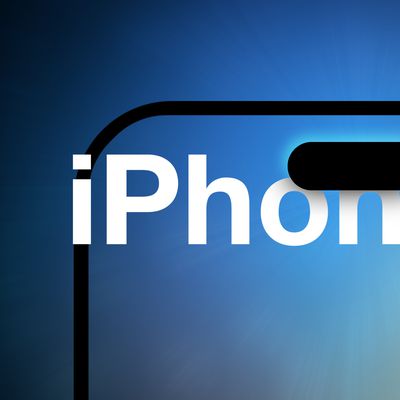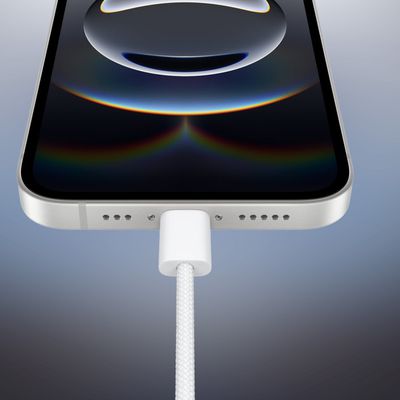Apple Responds to YiSpecter Malware, Says Fix Was Implemented in iOS 8.4
Over the weekend, security site Palo Alto Networks detailed a new iOS malware that's able to infect non-jailbroken Apple devices using enterprise certificates and private APIs. It originated in Taiwan and China and was installed through several methods, including hijacking traffic from ISPs, an SNS worm on Windows, and offline app installation.
Called YiSpecter, the malware is able to download, install, and launch apps, doing things like replacing existing apps, displaying advertisements in legitimate apps, changing Safari's default engine, and uploading user information to remote servers.

A popup ad that was able to install YiSpecter on iOS devices
In response to the detailing of YiSpecter, Apple has released an official statement to The Loop explaining that YiSpecter is only able to target iOS users who are running an older version of iOS that have also downloaded content from untrusted sources.
"This issue only impacts users on older versions of iOS who have also downloaded malware from untrusted sources. We addressed this specific issue in iOS 8.4 and we have also blocked the identified apps that distribute this malware. We encourage customers to stay current with the latest version of iOS for the latest security updates. We also encourage them to only download from trusted sources like the App Store and pay attention to any warnings as they download apps."
Apple implemented fixes for YiSpecter in iOS 8.4, so iOS 8.4.1 and iOS 9 are immune to the malware. Users who want to avoid being targeted by YiSpecter should make sure to upgrade to the latest version of iOS and as always, should avoid downloading apps from unverified sources.
Popular Stories
In a recent press release, Apple confirmed that iOS 18.4 will be released in April.
From the Apple News+ Food announcement:Coming with iOS 18.4 and iPadOS 18.4 in April, Apple News+ subscribers will have access to Apple News+ Food, a new section that will feature tens of thousands of recipes — as well as stories about restaurants, healthy eating, kitchen essentials, and more — from the...
Apple is expected to embrace a new camera system design for some models in its upcoming iPhone 17 series, and the latest purported CAD images don't deviate from what we have been hearing lately about Apple's new lineup. If you do not like the sound of an iPhone with a Google Pixel-style camera bar, look away now.
Seasoned leaker Sonny Dickson shared the following images in a post on X...
Apple has offered a reason why the iPhone 16e doesn't include MagSafe, one of the more notable omissions from its latest entry-level smartphone.
According to Apple representatives who spoke to Daring Fireball's John Gruber, MagSafe is not included in the iPhone 16e because "most people in the iPhone 16e's target audience exclusively charge their phones by plugging them into a charging...
iOS 19 is still around three months away from being unveiled, but there are plenty of rumors about the upcoming update.
Below, we recap iOS 19 rumors so far.
Redesigned Camera App
A leak earlier this year allegedly revealed a redesigned Camera app coming with iOS 19.
On his YouTube channel Front Page Tech in January, Jon Prosser shared a video showing what the new Camera app will...
iOS 18.4 was supposed to bring new Apple Intelligence Siri features, but Apple ended up needing to pull those capabilities from the update to continue testing. There are fewer new Apple Intelligence additions now, but there are still some new features that will make the update worth installing when it comes out in April.
Priority Notifications
Apple introduced Priority Notifications back at ...
In an all-caps post on Truth Social today, U.S. President Donald Trump said Apple should fully end its diversity, equity, and inclusion (DEI) policies.
Tim Cook meeting with President Trump in 2017
"APPLE SHOULD GET RID OF DEI RULES, NOT JUST MAKE ADJUSTMENTS TO THEM," he wrote.
Trump's post comes one day after Apple held its annual shareholders meeting, during which a majority of...
According to a post on X today from a leaker known as Kosutami, Apple plans to launch AirPods Pro 3 in May or June this year.
The leaker also claimed that an AirTag 2 will launch around the same time.
Kosutami is best known as a collector of prototype Apple hardware, but they have occasionally shared accurate information about Apple's future product plans. For example, they accurately...
The Apple Watch Ultra 3 is expected to launch later this year, arriving two years after the previous model with a series of improvements.
While no noticeable design changes are expected for the third generation since the company tends to stick with the same Apple Watch design through three generations before changing it, there are a series of internal upgrades on the way.
By the time the ...
iPhone 16e reviews are now out, and Apple's custom-designed C1 modem has been put to the test. The results so far are quite surprising, as the C1's speeds are not as slow compared to Qualcomm modems as originally expected.
While the C1 does not support ultra-fast mmWave 5G in the U.S., it appears to offer comparable 5G performance to Qualcomm's Snapdragon X71 modem found in the iPhone 16,...
























